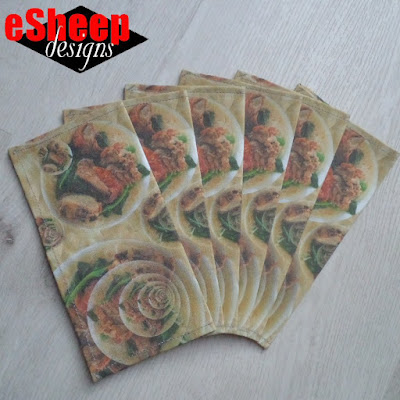
|
|
Six cotton linen cotton canvas napkins... |
I alluded to paper napkins still being used in our household, even though they
aren't wastefully used. We don't trash them after a couple of wipes; they
often sit on the table for days on end. (And I found out that I'm not the only one who engages in this practice.) When they are finally ready to be
tossed, they usually serve one more purpose: to wipe grease from food
containers and pans before they're washed.
That being the case, I don't see us ever being totally free of paper towels or napkins. But, as part of the philosophy that you should do what you can to reduce waste, I decided that giving fabric napkins a regular turn shouldn't be too much of an inconvenience.
That being the case, I don't see us ever being totally free of paper towels or napkins. But, as part of the philosophy that you should do what you can to reduce waste, I decided that giving fabric napkins a regular turn shouldn't be too much of an inconvenience.
Thus it was that I purchased some of my
Roast Duck & Veggie Noodle Soup
in linen cotton canvas when Spoonflower held one of their
regular 50% off fat quarter promotions.

A fat quarter of Spoonflower's linen cotton canvas measures 27" x 18". That yields exactly six pieces measuring 9" x 9". A 50% off sale brings the normal $15 FQ price to a very pocketbook friendly mark of $7.50, leading to a measly $1.25 per unit.
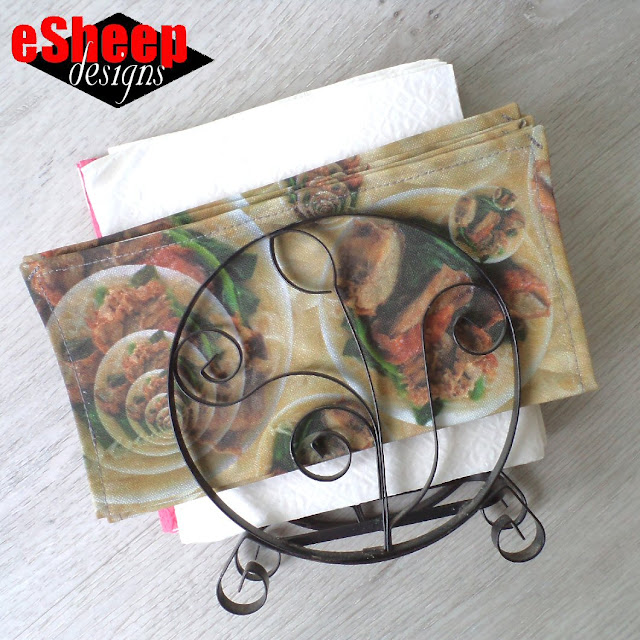
|
| Being prepared with both paper and cloth napkins... |
Now, a 9" square piece of fabric will turn into a napkin that's only about 8"
square: bigger than your usual cocktail napkin but smaller than the average
luncheon napkin.

|
| An 8" (about 20cm) square napkin is big enough... |
But... who cares? And why — may I ask in all honest curiosity — are table
napkins usually so big? What sort of mess are we creating when we eat that it
needs to be mopped up with such a large piece of cloth?
However big you prefer your table napkins, today I present to you a relatively easy way to make them.
First step is to cut your fabric into squares.
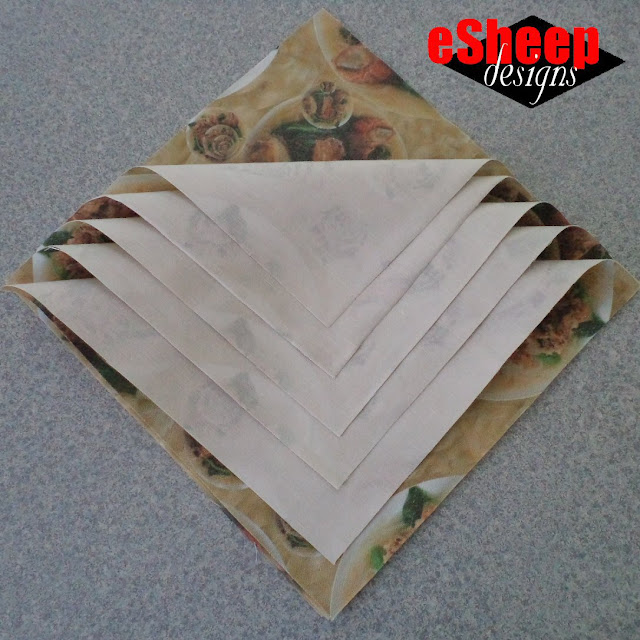
|
| Cut fabric squares... |
On the back side of the fabric, draw lines 1/4" in from the edge and 3/4" in from the edge, along all four sides. These will be guidelines for folding to ensure a perfectly mitred hem on the reverse side of the napkin.
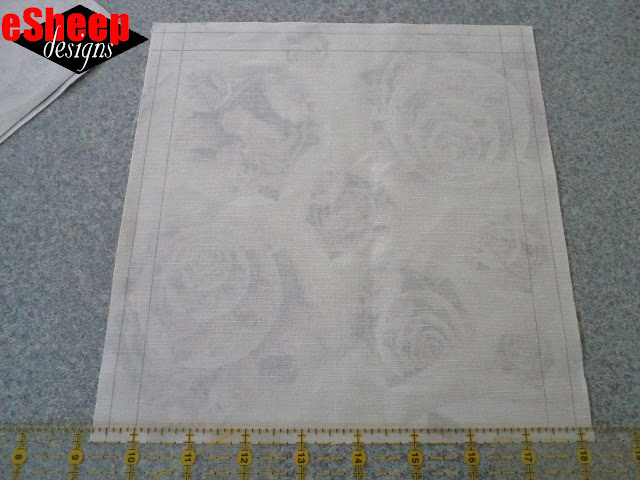
|
| Draw some guidelines... |
Fold all edges along the 1/4" line, using your finger or a folding tool to
press. (You don't need to use an iron at this point.) Start in the middle and
work your way to the corners.
When you get to the corner, fold it in as shown below.
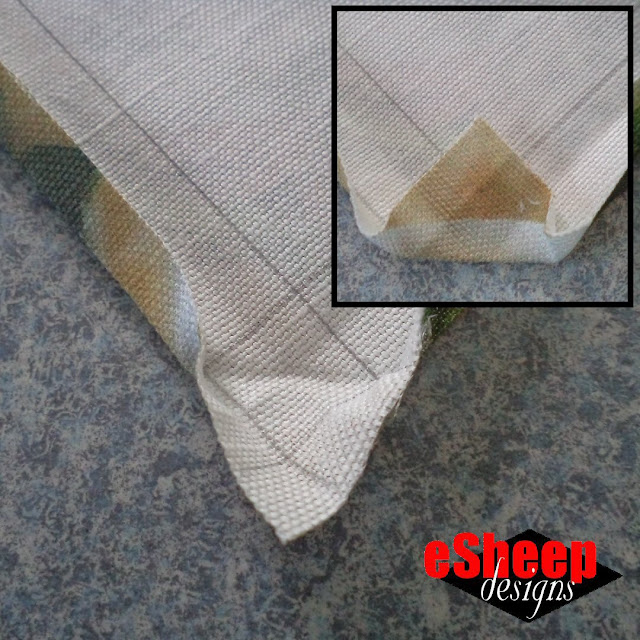
|
| Fold in the corners... |
Snip off the tip of each corner and continue with the 1/4" fold along all the
sides.
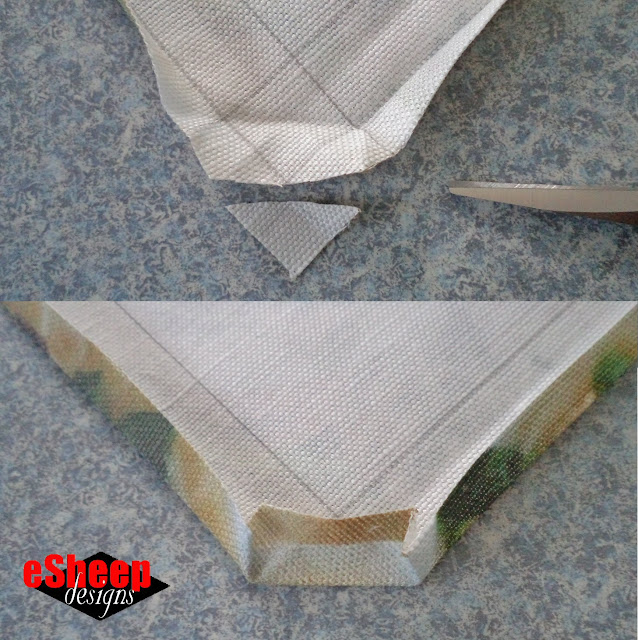
|
| Trim away the tip of the corner... |
To create the mitred corners, you will fold the edge up a second time, to the
other line that you drew. (There is no need to be perfect here as long as
you're consistent; the folded edge will likely wind up above the line that you
drew simply because of the thickness of the fabric.)
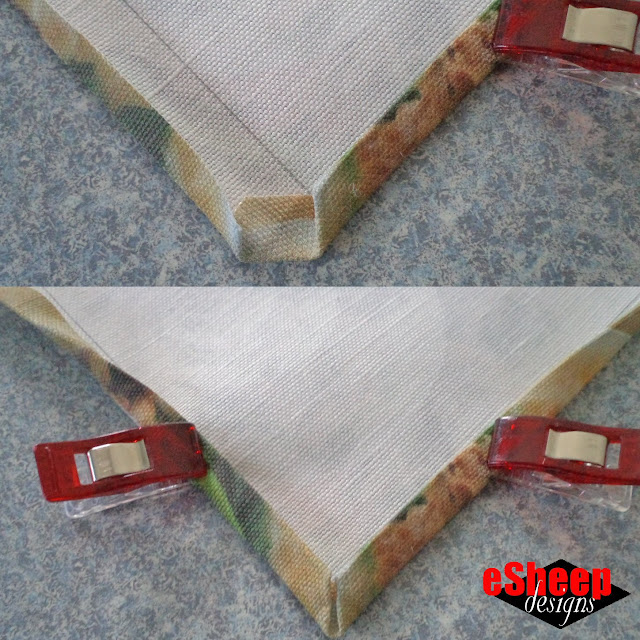
|
| Make a second fold to created the mitred corners... |
Use clips as you go to keep the edges and corners in place.

Take your folded cloth to your ironing station and press well.
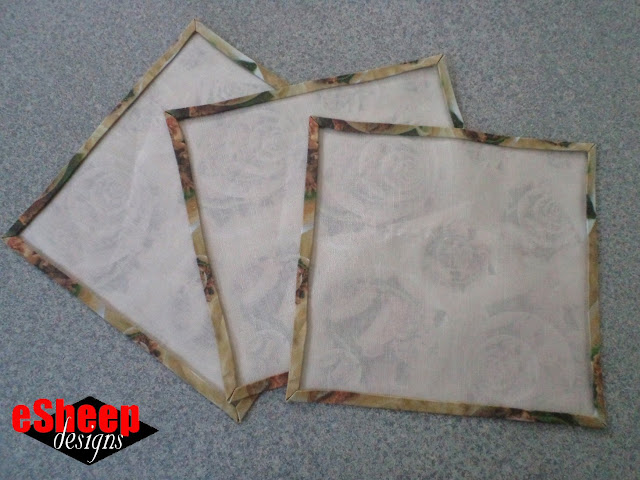
|
| Press well before sewing... |
One the edges are pressed, it's time to sew.
For whatever reason, my bottom stitches did not look even, no matter what I
did with the tension settings. (I suspect my needle may have played a role
since this is a heavier weight fabric, but since I had only recently changed
it out, I wasn't about to change it again.) I simply chose to sew these from
the top side, using my presser foot as a guide.
You can, of course, sew on whatever side you prefer.

|
| Half done... |
After sewing, I looked closely at the corners and decided that they could use some extra reinforcement.
 |
| Bar tacking the corners... |
Not wanting to give them any chance to pull loose after washing, I bar tacked them using a short
stitch. An alternative might be to go around another time with a second row of stitching.

Using a fabric with a busy print like this one ensures that a "gently used" napkin can stay on the table for a while.
It's the reason I used the same fabric to make
placemats
two years ago. These have been on our table ever since and are thrown into the wash every couple of weeks.

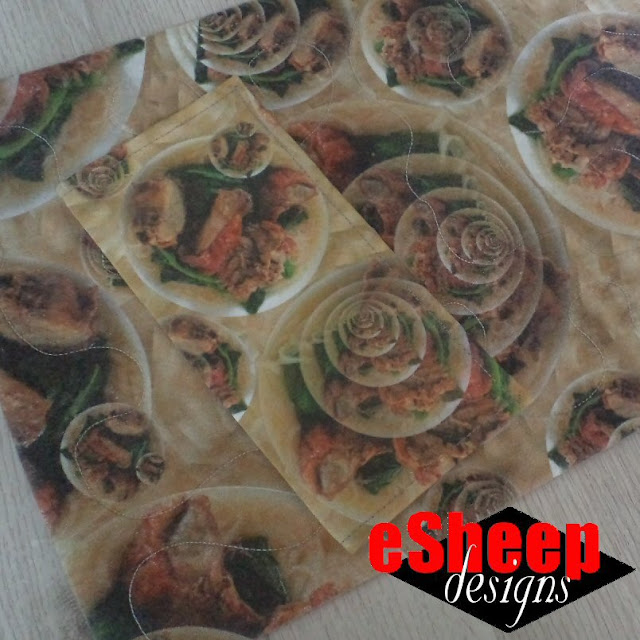

Hi Rochelle, So glad to read your latest post about making/using the smaller napkins. I've been doing this exact same thing for quite a while. Certainly cuts down on the use of those paper napkins. I've wondered why no one else used these "fingertip napkins" as I call them. And just like you, they are not thrown in the wash after one little wipe of the fingers. Thanks for all of your fun posts. Ellen
ReplyDeleteThanks for adding some sensibility to the discussion, Ellen. Being responsible means being less wasteful, even with our good intentions. Appreciate your kind words!
Delete